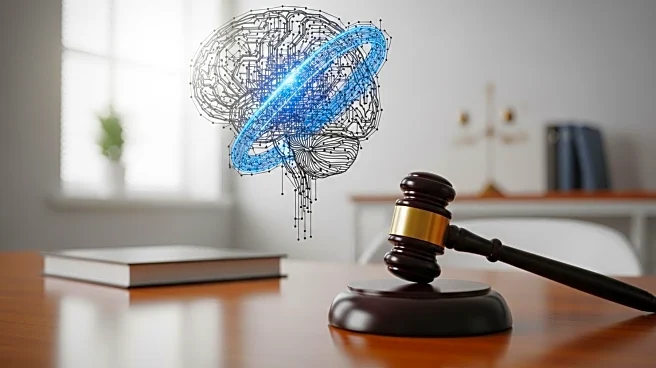What's Happening?
As artificial intelligence-driven mental health chatbots become more prevalent, several states have initiated regulations to manage these apps. The absence of comprehensive federal regulation has led states like Illinois, Nevada, and Utah to implement their own laws, which vary in approach. Illinois and Nevada have banned AI therapy apps, while Utah has imposed restrictions requiring clear disclosures and protection of user health information. Despite these efforts, the regulatory landscape remains fragmented, with concerns about the effectiveness of state laws in safeguarding users and holding developers accountable. The Federal Trade Commission has begun inquiries into major AI chatbot companies, and the FDA is set to review AI-enabled mental health devices, highlighting the need for federal oversight.
Why It's Important?
The regulation of AI therapy apps is crucial due to the growing reliance on these tools amidst a shortage of mental health providers and high costs for traditional care. While AI chatbots offer potential benefits, such as filling gaps in mental health services, they also pose risks, including inadequate responses to crises and ethical concerns. The fragmented state regulations may not sufficiently address these issues, underscoring the need for federal standards to ensure user safety and app accountability. The outcome of federal inquiries and reviews could significantly impact the development and deployment of AI therapy apps, influencing public policy and industry practices.
What's Next?
Federal agencies, including the FTC and FDA, are actively investigating AI therapy apps, which may lead to new regulations or guidelines. These could include marketing restrictions, requirements for user disclosures, and legal protections for reporting harmful practices. The ongoing scrutiny by federal bodies suggests potential changes in how AI therapy apps are developed and marketed. Developers and policymakers must navigate these evolving regulations to ensure compliance and address ethical concerns. The future of AI therapy apps will likely depend on balancing innovation with user safety and effective oversight.
Beyond the Headlines
The rise of AI therapy apps raises ethical and legal questions about the role of technology in mental health care. These apps blur the lines between companionship and therapy, challenging traditional boundaries and ethical standards. The potential for AI to replicate empathy and clinical judgment remains limited, prompting debates about the appropriateness of AI in therapeutic settings. As technology advances, the need for clear definitions and regulations becomes more pressing, highlighting the importance of ongoing dialogue among developers, regulators, and mental health professionals.










